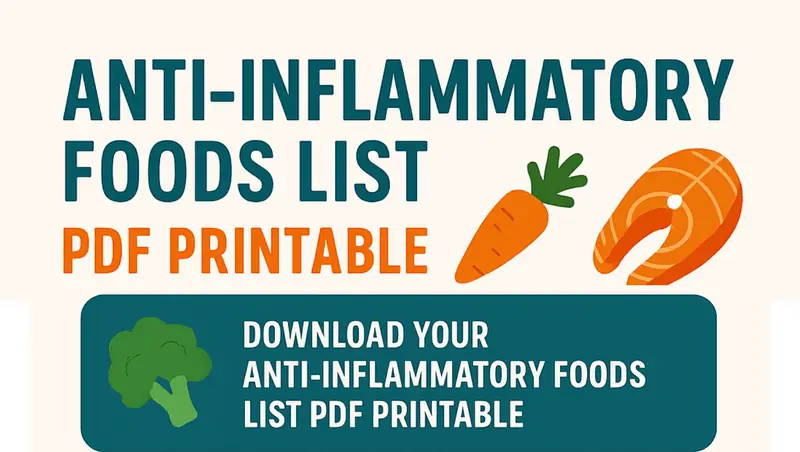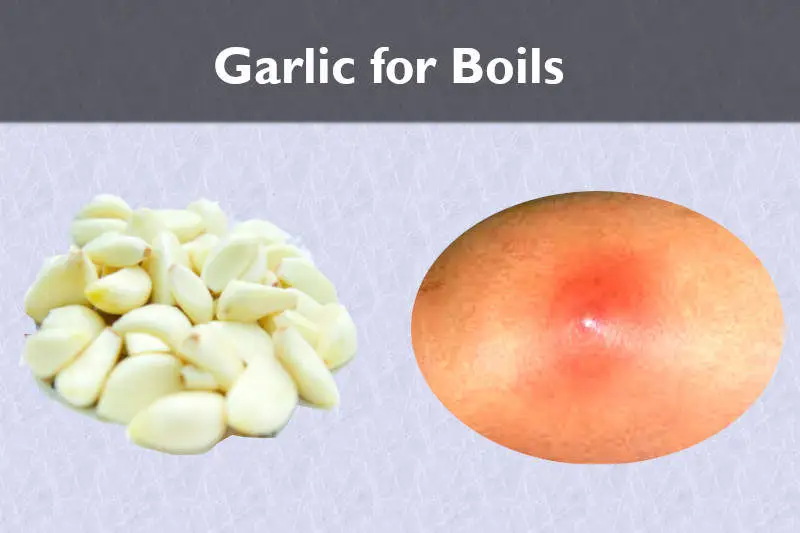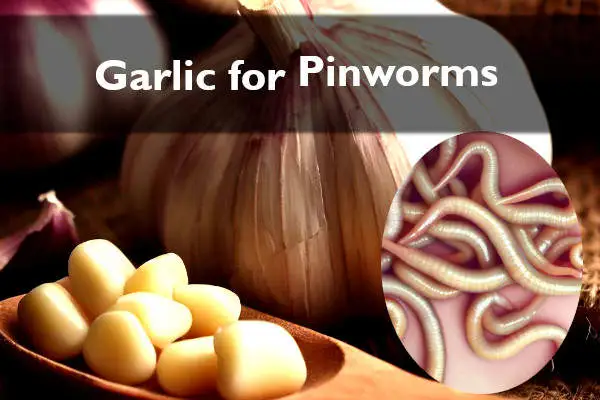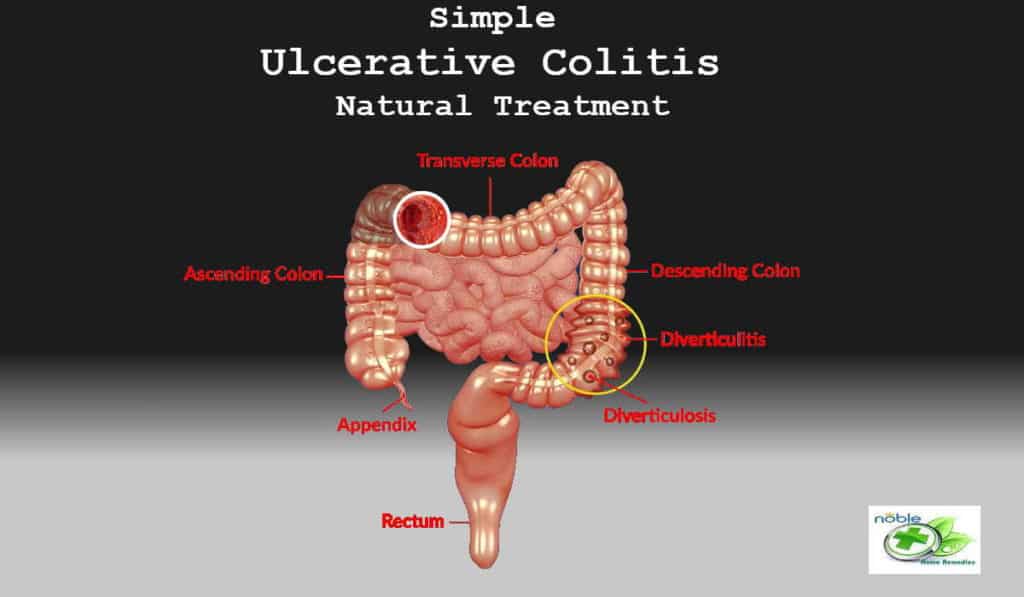The Anti-Inflammatory Diet Foods: A Powerful Tool for Health
Inflammation is a natural process in the body, a way for your immune system to protect itself from injury and infection. Imagine cutting your finger; the area becomes red, swollen, and painful, meaning that inflammation at work signals your body to begin repairs. Similarly, when you experience an illness or infection, your body triggers an inflammatory response to combat the harmful invaders. These are examples of acute inflammation is a short-term, localized response that generally resolves once the threat is neutralized.

However, what happens when the inflammatory response doesn’t switch off? This is when chronic inflammation becomes a concern. Instead of a helpful, temporary response, it becomes a persistent, low-grade simmering that can quietly damage cells, tissues, and organs throughout your body. Think of it like a fire that, instead of burning brightly and then dying down, smolders continuously, slowly damaging its surroundings.
This persistent, low-level inflammation has been linked to a wide range of chronic diseases, including heart disease, type 2 diabetes, certain cancers, arthritis, and Alzheimer’s disease. It’s a silent threat that can significantly impact your long-term health and well-being.
The good news is that you can influence your body’s inflammatory response. While factors like genetics, age, and environmental toxins play a role, your diet can significantly impact your body’s inflammation level. An anti-inflammatory diet focuses on consuming foods that help cool the flames of inflammation while avoiding those that fan the fire. It’s a way of eating that nourishes your body, supports your immune system, and promotes overall health and well-being.
Inflammation: Friend or Foe?

As discussed previously, inflammation is a natural and essential process that helps your body heal and protect itself. It’s a vital part of your immune response. However, it’s crucial to understand that there are two main types of inflammation: acute and chronic, and they have very different implications for your health.
Think of acute inflammation as your body’s immediate response to an injury or infection. It’s like a first responder rushing to the scene. You experience it as those familiar signs: redness, swelling, pain, and heat. For example, if you cut your finger, the area becomes inflamed as your body sends white blood cells to fight off potential infection and begin the healing process. This type of inflammation is typically short-lived and resolves on its own as the injury or infection heals.
In contrast, chronic inflammation is like a low-grade fire that smolders continuously within your body. It’s a persistent, systemic inflammatory response that can last for months or even years. Often, you might not even be aware of this underlying inflammation, as it may not present with obvious symptoms like pain or swelling. However, this persistent inflammation can quietly wreak havoc on your body, damaging healthy cells, tissues, and organs over time.
Chronic, systemic inflammation is a significant factor in the development of a wide range of chronic diseases. Some of the conditions linked to chronic inflammation include:
- Metabolic disorders: Obesity, metabolic syndrome, prediabetes, and type 2 diabetes.
- Cardiovascular disease: Heart disease, high blood pressure, and stroke.
- Gastrointestinal disorders: Inflammatory bowel disease (IBD), including Crohn’s disease and ulcerative colitis.
- Autoimmune diseases: Rheumatoid arthritis, lupus, psoriasis, Hashimoto’s thyroiditis, and scleroderma.
- Neurological disorders: Alzheimer’s disease and other dementias.
- Respiratory disorders: Asthma and chronic obstructive pulmonary diseases (COPD).
- Cancer: Certain types of cancer.
- Mental health conditions: Depression.
The sources explain that several factors can contribute to the development of chronic inflammation. These include:
- Environmental toxins: Exposure to pollutants and chemicals.
- Viral infections: Lingering viruses that the body struggles to clear.
- Aging: Natural age-related decline in immune function.
- Chronic stress: Prolonged stress can trigger inflammatory responses.
- Diet: Consuming a diet high in processed foods, sugary drinks, refined carbohydrates, and unhealthy fats can fuel inflammation.
Understanding the difference between acute and chronic inflammation and recognizing the significant health risks associated with chronic inflammation is crucial. By making conscious dietary and lifestyle choices, you can take proactive steps to manage inflammation and promote long-term health and well-being.
Reducing Inflammation Through Diet and Lifestyle

While there isn’t one specific anti-inflammatory diet, experts say overall healthy eating patterns can help you reduce inflammation and stay healthier. An anti-inflammatory diet focuses on choosing foods that can help cool the flames of inflammation and avoiding or limiting foods that can trigger it. The sources explain that an anti-inflammatory diet typically prioritizes whole, nutrient-dense foods that contain antioxidants. These antioxidants work by reducing the levels of free radicals, which are reactive molecules that may cause inflammation.
Benefits of an Anti-Inflammatory Diet:
An anti-inflammatory diet, along with exercise and good sleep, may provide many benefits:
- Improvement of symptoms of arthritis, inflammatory bowel disease (IBD), lupus, and other autoimmune disorders
- Decreased risk of obesity, heart disease, diabetes, depression, cancer, and other diseases
- Reduction in inflammatory markers in your blood
- Better blood sugar, cholesterol, and triglyceride levels
- Improvement in energy
The Mediterranean diet may be the most beneficial in helping people get inflammation under control because it emphasizes foods that are known to reduce inflammation. These foods include omega-3s, vitamin C, polyphenols, and fiber-rich foods. The DASH diet, which is short for Dietary Approaches to Stop Hypertension, is similar to the Mediterranean diet, but it focuses more on limiting salt and including more low-fat dairy products. The MIND diet is a blend of the Mediterranean and DASH diets and is considered “brain-healthy” because it may protect against Alzheimer’s disease and other dementias.
In addition to diet, the sources recommend other healthy habits to reduce inflammation. These habits include maintaining a healthy body weight, getting 30 minutes of physical exercise each day, managing stress, and getting 7-9 hours of quality sleep each night. You should treat any health problems that may cause chronic inflammation.
Foods That Fight Inflammation: Building Your Anti-Inflammatory Plate
An anti-inflammatory diet centers around incorporating a variety of whole, unprocessed foods that provide a rich supply of antioxidants, fiber, and essential nutrients. Here are some key food groups and specific examples to consider:

Fruits and Vegetables:
- Aim for at least 1½ to 2 cups of fruit and 2 to 3 cups of vegetables per meal.
- Choose colorful fruits and vegetables: Think of “eating the rainbow.”
- Deeply colored fruits: Blueberries, pomegranates, grapes, cherries, strawberries, blackberries, avocados
- High-fat fruits: Avocados and olives.
- Cruciferous vegetables: Broccoli, kale, Brussels sprouts, cabbage, cauliflower, spinach.
- Yellow and orange fruits and vegetables: Citrus fruits (oranges, grapefruit, pomelos), pumpkin, bell peppers, tomatoes, carrots.
- Why they are beneficial: Fruits and vegetables are packed with antioxidants, which support the immune system and may help fight inflammation. They also provide fiber, which can lower C-reactive protein (CRP), a substance in the blood that indicates inflammation.
Whole Grains:
- Choose whole grains over refined grains.
- Examples: Oatmeal, brown rice, quinoa, whole wheat bread, barley, farro, sorghum.
- Why they are beneficial: Whole grains are rich in fiber, which can help reduce inflammation.
Healthy Fats:
- Omega-3 Fatty Acids:
- Sources: Fatty fish (salmon, herring, mackerel, sardines, tuna, striped bass, anchovies).
- Vegetarian/vegan sources: Nuts and seeds (walnuts, flax seeds, chia seeds), canola oil.
- Why they are beneficial: Omega-3 fatty acids are powerful inflammation fighters. They reduce levels of inflammatory proteins in the body. You can also take fish oil supplements to increase your intake of omega-3s.
- Olive Oil:
- Choose: Extra virgin olive oil is less refined and retains more nutrients.
- Why it is beneficial: It contains heart-healthy monounsaturated fat, antioxidants, and oleocanthal, a compound that can lower inflammation and pain.
- Avocado Oil:
Protein:
- Fatty Fish:
- Why it is beneficial: It is a good source of anti-inflammatory omega-3 fatty acids.
- Beans:
- Examples: Pinto, black, red kidney, and garbanzo beans.
- Why they are beneficial: Beans have several antioxidant and anti-inflammatory compounds, and they are a good source of fiber and protein.
- Tofu and Tempeh:
- Why they are beneficial: Soy-based products are high in polyunsaturated fat, fiber, calcium, and vitamins, and they are low in saturated fat.
- Nuts:
- Examples: Walnuts, pine nuts, pistachios, and almonds.
- Why they are beneficial: Nuts are full of inflammation-fighting monounsaturated fat, protein, and filling fiber.
Other:
- Spices:
- Examples: Turmeric, fenugreek, cinnamon, ginger, garlic, cardamom, black pepper, clove, cumin, fennel, onion, and rosemary.
- Why they are beneficial: People have used plants as medicine for thousands of years, and some research suggests herbs and spices may target pathways that lead to inflammation. Curcumin, the active compound in the spice turmeric, has the most anti-inflammatory research behind it.
- Dark Chocolate:
- Choose: At least 80% cocoa.
- Why it is beneficial: Rich in polyphenols, which protect the body from inflammation.
- Green Tea:
- Coffee:
- Why they are beneficial: Rich in polyphenols, which protect the body from inflammation.
- Red Wine (in moderation):
- Why it may be beneficial: Contains resveratrol, which may have anti-inflammatory properties. Note: Excessive alcohol consumption can increase inflammation.
- Probiotics and Prebiotics:
- Probiotics: Fermented foods that have live bacteria within them (plain yogurt, kefir, kimchi, miso, tempeh, fermented vegetables like sauerkraut).
- Prebiotics: Foods that feed and maintain good intestinal bacteria (soluble fiber).
- Why they are beneficial: A healthy population of beneficial bacteria in the intestines can help keep inflammation at bay.
Tips:
- Read food labels carefully. Look for hidden sugar, trans fats (partially hydrogenated oils), and excess sodium.
- Be mindful of sauces and dressings. They can be high in inflammatory ingredients.
- Enjoy a variety of foods from each food group.
- Gradually incorporate more anti-inflammatory foods into your diet.
- Consider substituting inflammatory foods with healthier alternatives.
For example, instead of:
- Charcuterie boards: Try vegetable slices with hummus
- French fries: Try baked sweet potatoes
- Sauces with butter or cheese: Try olive oil, vinegar, and herbs
- Grilled burgers: Try grilled eggplant or portobello mushrooms
- Bakery cakes and pies: Try dark chocolate with raspberries or grilled peaches
Remember that building a healthy, holistic dietary pattern can help lower your risk of inflammatory disease and transform your health. While no one food reduces inflammation, including a variety of anti-inflammatory foods in your diet, along with other healthy lifestyle choices, can help you effectively manage inflammation and support your overall well-being.
Considering using an Anti-Inflammatory Diet Meal Plan
Adopting an anti-inflammatory diet meal plan is a powerful step towards better health, and a well-structured meal plan makes it achievable and enjoyable. The core principle involves prioritizing whole, unprocessed foods rich in antioxidants, healthy fats, and fiber, while significantly reducing intake of inflammatory triggers like refined sugars, processed meats, and unhealthy fats.
Anti-Inflammatory Foods List PDF PRINTABLE
Here comes your personalized, printable design perfect for sharing in wellness circles or adding flair to your nutrition resources. You’ll see a modern, organized layout featuring delicious anti-inflammatory essentials like berries, leafy greens, turmeric, ginger, and fatty fish, plus bonus tips for pairing, planning, and shopping.

Avoiding the Fire-Starters: Foods to Limit or Avoid on an Anti-Inflammatory Diet

The goal of an anti-inflammatory diet is to reduce foods that contribute to chronic inflammation and increase foods that fight inflammation. While there is no one-size-fits-all approach, some foods are generally recognized as pro-inflammatory, and reducing or eliminating them can be beneficial. Here’s a detailed breakdown of the foods to limit or avoid:
Sugary Foods and Beverages:
- Examples: Sugar-sweetened drinks (soda, fruit juices), candy, cookies, cakes, pastries, and other desserts.
- Why they are harmful: Sugar causes your body to release inflammatory messengers called cytokines. It’s best to avoid or limit food and drinks with added sugars, including agave and honey, if possible.
- Additional considerations:
- Many prepared foods contain hidden sugar, so it’s essential to check the ingredients list. Sugar often hides under different names, including “cane crystals,” “crystalized cane juice,” syrups, and ingredient names that end in “ose”.
- Excess sugar consumption can contribute to weight gain, high blood sugar, and high cholesterol, all of which are linked to inflammation.
Refined Carbohydrates:
- Examples: White bread, white pasta, white rice, and many baked goods.
- Why they are harmful: Refined carbohydrates are quickly digested and can cause spikes in blood sugar, leading to increased inflammation.
- Alternatives: Choose whole grains over refined grains for a slower release of energy and to help stabilize blood sugar levels.
Unhealthy Fats:
- Trans Fats:
- Found in: Packaged food labels as “partially hydrogenated oils”.
- Why they are harmful: A diet high in trans fats can raise LDL cholesterol and increase the risk of heart disease, stroke, and type 2 diabetes, all conditions associated with inflammation. Trans fats have been banned by the FDA.
- Important note: Any food that lists partially hydrogenated oils as an ingredient should be avoided.
- Saturated Fats:
- Found in: Red and processed meats, butter, whole milk, cheese, and fried foods.
- Why they are harmful: Excessive intake of saturated fats can contribute to inflammation.
- Alternatives: Choose lean protein sources, and low-fat dairy options, and use healthier cooking methods like baking, grilling, or steaming.
- Some Vegetable Oils:
- Examples: Corn oil, safflower oil, soybean oil (high in omega-6 fatty acids)
- Why they are harmful: While omega-6 fatty acids are necessary, excessive intake can disrupt the balance between omega-6s and omega-3s, potentially promoting inflammation.
Processed Meats:
- Examples: Hot dogs, bologna, sausages, bacon, deli meats.
- Why they are harmful: They are high in saturated fat and contain additives that may contribute to inflammation.
- Alternatives: Choose lean protein sources like fish, beans, tofu, tempeh, poultry, or eggs.
Processed and Ultra-Processed Foods:
- Examples: Cookies, chips, crackers, pretzels, fast food, and other convenience foods.
- Why they are harmful: They are often high in unhealthy fats, added sugars, salt, and artificial ingredients that can promote inflammation.
- Alternatives: Opt for fresh or minimally processed foods whenever possible.
Alcohol (excessive consumption):
- Why it is harmful: While moderate alcohol intake (especially red wine) may offer some health benefits, excessive alcohol consumption can lead to inflammation.
- Recommendation: The sources recommend limiting alcohol to 1 drink a day for women and up to 2 drinks a day for men. Talk to your doctor about what amount of alcohol, if any, is appropriate for you.
Gluten-Containing Foods (for those with sensitivities):
- Examples: Wheat, rye, barley.
- Why they are harmful: People with celiac disease or non-celiac gluten sensitivity may experience inflammation in response to gluten.
Other Potential Trigger Foods:
- Dairy (for those with lactose intolerance): Lactose intolerance can cause digestive discomfort and inflammation.
- Nightshade Vegetables (for some individuals): Eggplant, tomatoes, peppers, and potatoes are nightshade vegetables. While they are a central part of the Mediterranean diet, some individuals may experience arthritis flares or other inflammatory symptoms after consuming them. The sources recommend cutting nightshades from your diet for two weeks to see if symptoms improve.
- Cruciferous Vegetables (for those with specific digestive issues): While generally healthy, cruciferous vegetables like broccoli, cabbage, and Brussels sprouts may cause gas and bloating in some individuals with digestive disorders, which can worsen inflammatory bowel conditions.
Important Note: It’s crucial to personalize your anti-inflammatory diet based on your individual needs and tolerances. Some foods on this list may not trigger inflammation in everyone. If you suspect a food sensitivity, talk to your doctor or a registered dietitian. They can help you identify your specific triggers and create an eating plan that works best for you.
Popular Anti-Inflammatory Diets: A Detailed Look

The sources describe several popular diets that align with anti-inflammatory principles. These diets aren’t strict regimens but rather eating styles emphasizing whole foods and limiting pro-inflammatory substances. The effectiveness of these diets varies depending on individual health and the cause of inflammation.
1. Mediterranean Diet: This diet, inspired by the cuisines of Mediterranean countries, is frequently cited as highly beneficial for reducing inflammation. It emphasizes:
- Abundant fruits and vegetables: A wide variety of colorful options, contributing antioxidants and fiber.
- Whole grains: Oats, whole wheat, barley, etc., providing fiber.
- Healthy fats: Olive oil is a cornerstone, providing monounsaturated fats and antioxidants. Fatty fish (salmon, tuna, sardines) supply omega-3 fatty acids. Nuts and seeds also provide healthy fats.
- Legumes: Beans, lentils, etc., offering fiber and antioxidants.
- Lean protein: Poultry and fish are preferred over red meat, which may be inflammatory depending on the source and individual reaction.
- Limited processed foods, added sugars, and saturated fats: These are minimized to curb inflammation.
- Moderate alcohol consumption: Red wine, in moderation, may provide some anti-inflammatory benefits due to resveratrol; however, excessive alcohol is detrimental.
The Mediterranean diet has been shown to reduce inflammatory markers like IL-17A and IL-6. Research suggests it reduces inflammation’s effects on the cardiovascular system and is protective against various chronic diseases.
2. DASH Diet (Dietary Approaches to Stop Hypertension): Similar to the Mediterranean diet, DASH also prioritizes anti-inflammatory effects. Key components include:
- Emphasis on fruits, vegetables, whole grains, and lean protein.
- Increased low-fat dairy products.
- Lower sodium intake.
- Limitation of saturated fats and added sugars.
Studies demonstrate DASH’s positive impact on inflammatory markers and it may offer additional benefits in inflammatory arthritis conditions by lowering uric acid.
3. MIND Diet (Mediterranean-DASH Intervention for Neurodegenerative Delay): This combines elements of both the Mediterranean and DASH diets, focusing on brain health. It emphasizes the same anti-inflammatory foods, but it particularly highlights:
- Leafy green vegetables.
- Berries.
- Nuts and beans.
The MIND diet’s anti-inflammatory properties may help protect against Alzheimer’s disease and other dementias.
4. Vegetarian and Vegan Diets: These plant-based diets, excluding meat, poultry, fish, and often animal products, are associated with lower levels of inflammation. However, the sources stress the importance of focusing on whole, unprocessed plant foods to reap these benefits. Highly processed vegetarian or vegan foods negate any potential anti-inflammatory effects. Furthermore, careful planning is needed to ensure adequate nutrient intake, especially with vegan diets. A registered dietitian can assist with this.
5. IBD-AID (Anti-Inflammatory Diet for Inflammatory Bowel Disease): This diet is specifically designed for managing IBD. It has three phases, starting with easily digestible foods for those experiencing flares, and gradually introducing more variety as symptoms improve. This diet emphasizes:
- Avoidance of pro-inflammatory foods like lactose, wheat, refined sugar, and corn.
- Inclusion of various fruits, vegetables, lean proteins, and healthy fats.
- Limiting saturated fat.
- Careful attention to food textures, particularly during the initial phases.
The sources highlight that each of these diets emphasizes an overall healthy dietary pattern over any single food, and they emphasize the importance of individual needs and potential food sensitivities. A healthcare provider or registered dietitian should be consulted to determine which approach is best for each individual.
Beyond Diet: Additional Tips for Reducing Inflammation
The sources emphasize that food is just one part of the equation when it comes to reducing inflammation. They offer several additional tips for creating a holistic anti-inflammatory lifestyle:
1. Supplements:
- Fish Oil: Supplements containing omega-3 fatty acids, particularly EPA and DHA, may help reduce inflammation. The sources suggest 1,000 milligrams of fish oil daily or 3-4 grams to address inflammatory conditions.
- Curcumin: The active compound in turmeric, curcumin, shows promise as an anti-inflammatory agent. Studies indicate that 1,000 milligrams daily may alleviate pain and inflammation from osteoarthritis and potentially benefit individuals with rheumatoid arthritis. Check this top-selling THORNE Curcumin Phytosome supplement on Amazon.
- General Note: While supplements can be helpful, it’s essential to discuss them with your healthcare provider before starting any new regimen, as they can interact with medications or have contraindications.
2. Regular Exercise:
- Benefits: Exercise can reduce inflammatory markers and decrease the risk of chronic diseases. Physical activity helps maintain a healthy weight, improves insulin sensitivity, and promotes overall well-being, all factors contributing to lower inflammation levels.
- Recommendations: Aim for at least 150 minutes of moderate-intensity aerobic activity (like brisk walking) or 75 minutes of vigorous-intensity aerobic activity (like running) per week, along with muscle-strengthening activities on two or more days.
3. Adequate Sleep:
- Importance: Sufficient sleep is crucial for reducing inflammation. Sleep deprivation can increase inflammatory markers, potentially leading to chronic health problems.
- Recommendation: Aim for 7-9 hours of quality sleep each night.
- Tips for Improved Sleep: Establish a regular sleep schedule, create a relaxing bedtime routine, avoid caffeine and alcohol before bed, ensure a dark, quiet, and cool sleep environment, and consult a healthcare professional if you have persistent sleep difficulties.
4. Stress Management:
- Connection: Chronic stress contributes to inflammation, disrupting hormonal balance and impacting the immune system.
- Strategies: Incorporate stress-reducing activities into your routine, such as meditation, yoga, deep breathing exercises, spending time in nature, listening to calming music, or pursuing hobbies you enjoy.
5. Smoking Cessation:
- Link: Smoking increases inflammation throughout the body, damaging blood vessels and organs, and contributing to various chronic diseases.
- Resources: If you smoke, seek support from your healthcare provider, join a smoking cessation program, and consider using nicotine replacement therapy or other medications to help you quit.
6. Limit Alcohol Intake:
- Impact: While moderate alcohol consumption may have some benefits, excessive drinking promotes inflammation and is linked to numerous health problems.
- Guidelines: The sources recommend limiting intake to 1 drink per day for women and up to 2 drinks per day for men. It’s crucial to discuss alcohol consumption with your doctor to determine the appropriate amount for your health.
7. Maintain a Healthy Weight:
- Role: Obesity increases inflammation due to the production of pro-inflammatory compounds by fat cells, particularly those in the abdominal area.
- Benefits of Weight Loss: Even a modest weight loss of 10% can significantly reduce inflammation.
- Strategies: Adopt a balanced diet like the Mediterranean diet, engage in regular exercise, and seek guidance from a healthcare professional or registered dietitian for personalized weight management strategies.
8. Manage Underlying Health Conditions:
- Connection: Certain health conditions, such as autoimmune disorders and chronic infections, can drive inflammation.
- Importance: Working with your healthcare provider to effectively manage these conditions is crucial for reducing inflammation and improving overall health.
By embracing these lifestyle changes alongside a healthy diet, you can create a comprehensive approach to reducing inflammation and promoting long-term health and well-being.
Takeaway
An anti-inflammatory approach to living is about more than just food choices. It’s a multifaceted strategy that incorporates dietary changes with other healthy lifestyle habits to effectively combat inflammation and reduce the risk of chronic diseases.
Focus on Whole Foods: Building your diet around a colorful array of fruits and vegetables, whole grains, lean proteins, and healthy fats is a great place to start.
Reduce Processed Foods and Harmful Ingredients: Minimizing processed foods, added sugars, unhealthy fats, and excess salt is equally important for reducing inflammation.
Lifestyle is Key: It’s crucial to remember that food is just one piece of the puzzle. Regular exercise, adequate sleep, effective stress management, smoking cessation, limiting alcohol, and maintaining a healthy weight are all vital components of a holistic anti-inflammatory lifestyle.
Personalized Approach: An anti-inflammatory approach should be tailored to your individual needs. Be mindful of potential food sensitivities and work with healthcare professionals, such as doctors or registered dietitians, to create a plan that supports your overall health goals.
Listen to Your Body: Pay attention to how your body responds to different foods and lifestyle choices. If you notice a decrease in symptoms like joint pain, fatigue, or skin issues, you’re likely on the right track.
Sustainability is Key: Remember, this is not a quick fix but rather a long-term commitment to a healthier way of life. Choose strategies that you can sustain over time, making gradual changes to create lasting habits.
By embracing an anti-inflammatory lifestyle and adopting these evidence-based strategies, you can empower yourself to live a healthier, more vibrant life while reducing the risk of developing chronic diseases.
Source:
Noble Home Remedies adheres to rigorous sourcing standards, drawing information from peer-reviewed studies, reputable academic research institutions, and esteemed medical journals and associations. We prioritize using high-quality, trustworthy sources to maintain the accuracy and integrity of our content. You can learn more about how we ensure our content is accurate and current by reading our editorial policy.
- Anti-Inflammatory Diet for IBD (IBD -AID)
https://www.umassmed.edu/nutrition/ibd/ibdaid/ - The Anti-Inflammatory Lifestyle
https://www.fammed.wisc.edu/files/webfm-uploads/documents/outreach/im/handout_ai_diet_patient.pdf - Health benefits of an anti-inflammatory diet: 10 foods to eat and 6 to avoid
https://health.unl.edu/health-benefits-anti-inflammatory-diet-10-foods-eat-and-6-avoid/ - Anti-inflammatory diet: what you need to know
https://www.bhf.org.uk/informationsupport/heart-matters-magazine/nutrition/anti-inflammatory-diet - Food as Medicine: Anti-Inflammatory Diet
https://www.chop.edu/health-resources/food-medicine-anti-inflammatory-diet
The Best Books on the Power of an Anti-Inflammatory Diet!
Are you ready to transform your health and reduce inflammation naturally? Dive into our handpicked selection of top books on the anti-inflammatory diet.
These expert-authored guides offer practical advice, delicious anti-inflammation diet recipes, and science-backed insights to help you embrace a lifestyle that promotes healing and well-being.
Whether you’re a beginner or a seasoned health enthusiast, these books provide the tools you need to make informed choices and enjoy a vibrant, inflammation-free life.
Book 1: The Anti-Inflammatory Diet Slow Cooker Cookbook

Discover the ultimate guide to reducing inflammation through delicious, easy-to-make meals with “The Anti-Inflammatory Diet Slow Cooker Cookbook.” This book offers 90 satisfying recipes that require minimal prep time and harness the convenience of your slow cooker or multi-cooker.
Enjoy dishes like Caramel-Apple Oats, Indian Butter Chickpeas, and Tangy Barbecue Chicken, all designed to soothe inflammation and promote long-term healing. Perfect for busy lifestyles, this cookbook includes allergen-aware labels and practical tips to make healthy eating simple and enjoyable.
Book 2: The Complete Anti-Inflammatory Diet for Beginners

Embark on a path to wellness with “The Complete Anti-Inflammatory Diet for Beginners.” This book offers a no-stress meal plan with easy recipes designed to heal your immune system and reduce inflammation.
Perfect for those new to the anti-inflammatory lifestyle, it provides practical advice, simple meal prep tips, and delicious recipes that make healthy eating enjoyable and sustainable. Say goodbye to complicated diets and hello to a healthier, happier you!
Book 3: The Anti-Inflammatory Diet & Action Plans

Unleash the healing power of your diet with “The Anti-Inflammatory Diet & Action Plans.” This book provides four structured 4-week meal plans designed to reduce inflammation and enhance your immune system. Featuring over 130 mouth-watering recipes, you’ll find options that cater to various dietary preferences, including vegan, Mediterranean, Paleo, and time-efficient plans.
Whether you’re new to the anti-inflammatory lifestyle or looking to deepen your practice, this guide offers practical, easy-to-follow plans and delicious recipes to support your journey to better health.
Supplements: Nordic Naturals Ultimate Omega – Fish Oil

Experience the anti-inflammatory benefits of Nordic Naturals Ultimate Omega, a top-rated fish oil supplement. Packed with high concentrations of omega-3 fatty acids (EPA and DHA), this supplement supports heart, brain, and immune health. Made from 100% wild-caught sardines and anchovies, it’s free from artificial colors, flavors, and preservatives.
With a pleasant lemon flavor and third-party tested for purity and freshness, Ultimate Omega is the perfect addition to your daily routine for overall wellness and inflammation reduction.
Trust in your purchase:
Every product featured on our site has been carefully researched and selected based on quality, customer ratings, and positive reviews to ensure you receive excellent value for your money.
Please note:
This post contains affiliate links. If you make a purchase through these links, we may earn a small commission at no additional cost to you. This helps support our site and allows us to continue bringing you valuable content. Thank you!
Thank you for your precious time spent with NobleHomeRemedies.
You may also like:
Garlic for Boils
Garlic for Boils: Is Garlic Good for Boils-Topically or Oral Boils are painful, pus-filled lumps…
Epsom Salt Bath for UTI
Epsom Salt Bath for UTI in 6 Steps: Does It Really Work? Urinary tract infections…
Garlic for Pinworms
Garlic for Pinworms: The Secret Weapon Against Pinworms! Pinworms are a common type of intestinal…
Epsom Salt for Foot Pain
Epsom Salt for Foot Pain: Proven Remedies for Happy Feet Have you ever felt like…
Simple Ulcerative Colitis Natural Treatment – Causes and Symptoms
Simple Ulcerative Colitis Natural Treatment – Causes and Symptoms Over a million people in America…
Does Almond Milk Cause Constipation
Does almond milk cause constipation? Truth is Revealed If you’re reading this, you may be…






